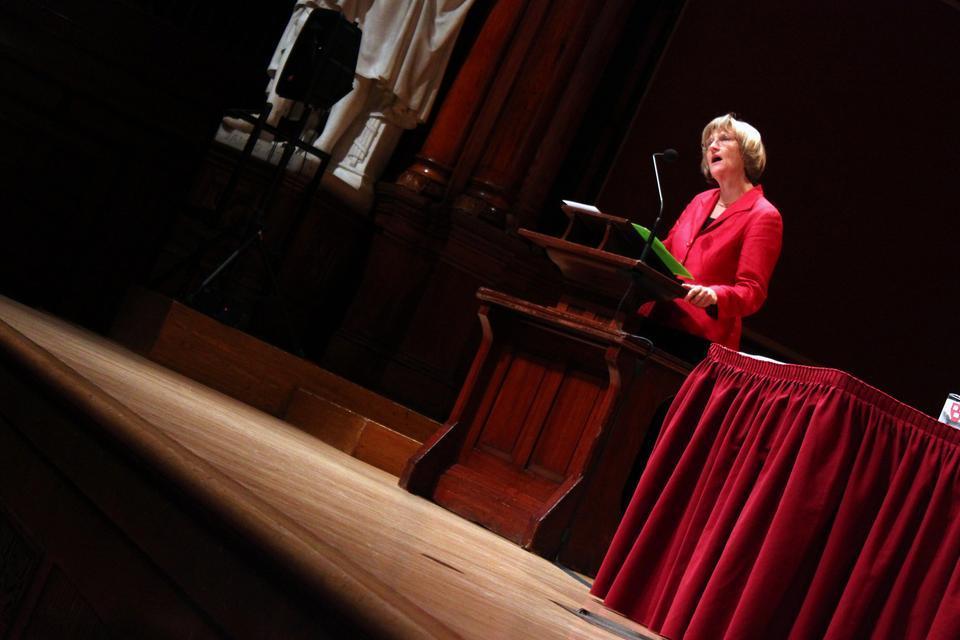
News
Summers Will Not Finish Semester of Teaching as Harvard Investigates Epstein Ties

News
Harvard College Students Report Favoring Divestment from Israel in HUA Survey

News
‘He Should Resign’: Harvard Undergrads Take Hard Line Against Summers Over Epstein Scandal

News
Harvard To Launch New Investigation Into Epstein’s Ties to Summers, Other University Affiliates

News
Harvard Students To Vote on Divestment From Israel in Inaugural HUA Election Survey
Panel Discusses Economic Crisis
Faust moderates discussion on the financial meltdown and recovery

In a continuation of an academic forum held two years ago to consider the origins of and possible solutions to the economic crisis, Harvard President Drew G. Faust moderated a discussion about prospects for the future of the global economy in Sanders Theater yesterday afternoon.
The five Harvard professors on the panel positively reviewed the Obama administration’s response to the crisis and praised both the Troubled Asset Relief Program and the Dodd–Frank Wall Street Reform and Consumer Protection Act, but offered more cautious and gloomy predictions about the months and years ahead.
“For the average American, the recovery is going to take an extremely long period of time,” said Economics Professor Richard B. Freeman, a labor economist.
“I would say [that the recovery will last] until the end of this decade. We are headed for a very, very difficult period,” Freeman said.
Panelist Brigitte Madrian, a professor of public policy at Harvard Kennedy School, said that the nation’s Social Security and Medicare programs are predicted to run out of money by no later than 2040, according to a 2006 report from the Social Security Administration.
“Nobody wants to bite the bullet and try to solve these problems early” because of the political ramifications, said Madrian, who is also the director of the Social Science Program at the Radcliffe Institute for Advanced Study. “But if we wait, the problem just becomes worse and worse.”
The panelists also defended the work of economists in the years before and after the crisis, noting that the specialized nature of economic study limited academics’ ability to spot the problems beforehand.
“The economics profession did not do a good enough job of understanding what was happening quickly enough,” said Economics Department Chair John Y. Campbell. “Academia is slow moving...we need to speed up.”
Campbell used the analogy, which was frequently revisited, of a bus driving down a winding mountain road. Other cars, or foreign economies, need to allow the American economy to turn around the curved road, or else the economy might crash again, panelists said.
Closing the event, Faust echoed that analogy, saying that the various components of the American economy are on an “uncharted road, we don’t have a very good map, and the skills [we’ve learned before] may not apply.”
Want to keep up with breaking news? Subscribe to our email newsletter.
